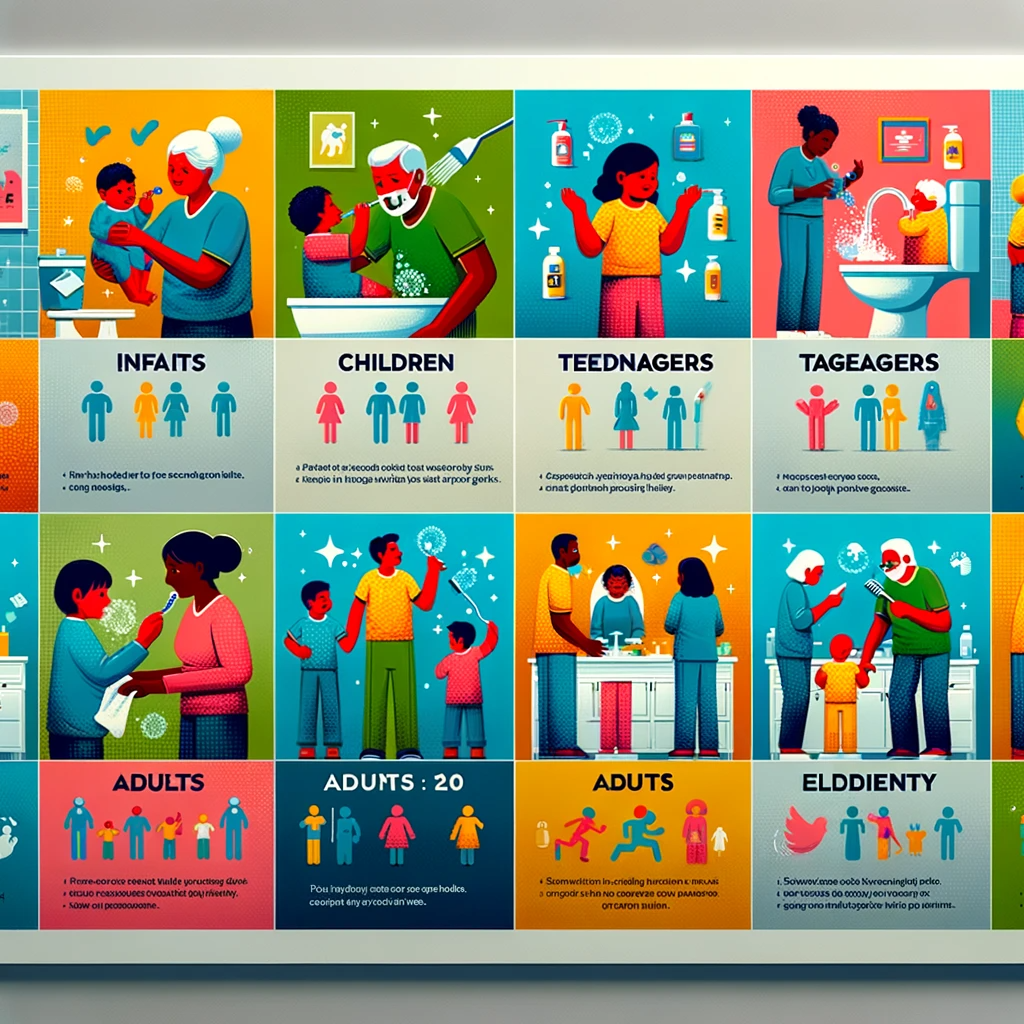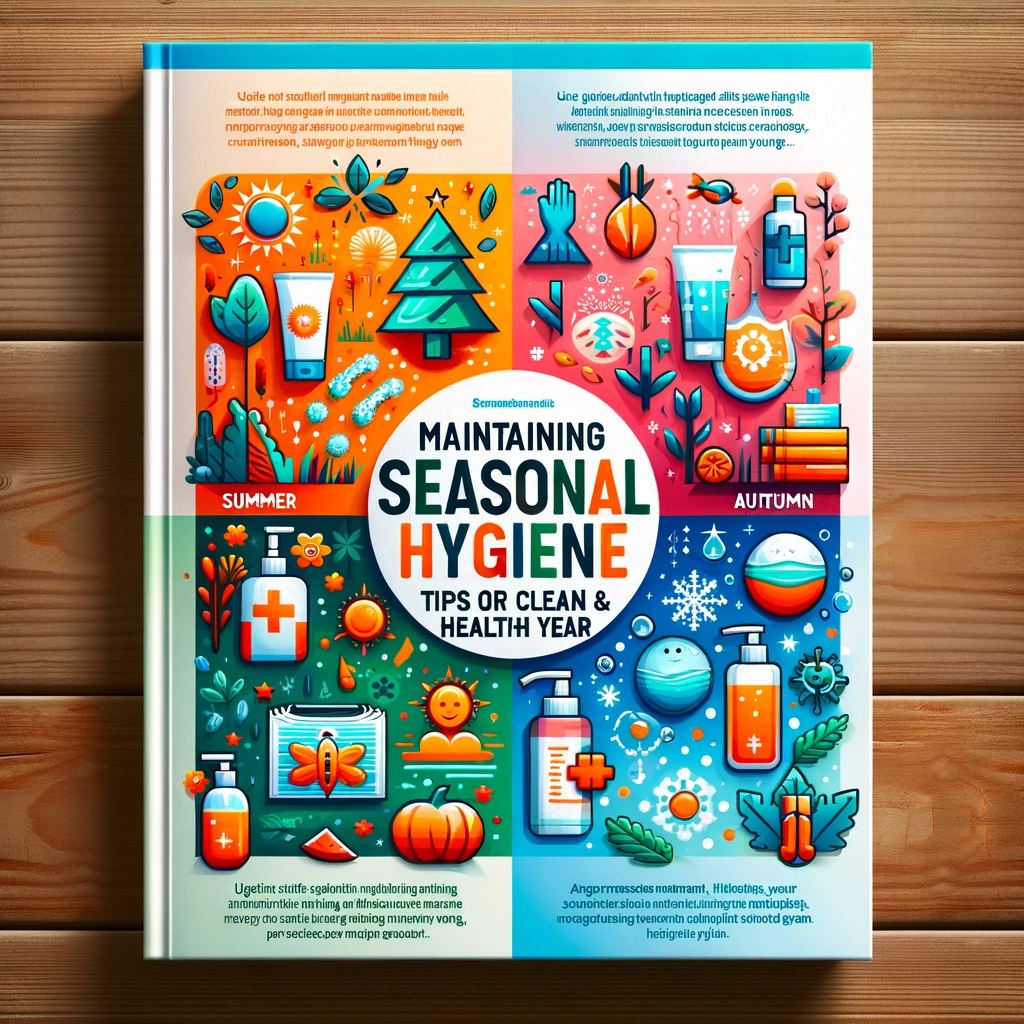In the contemporary world, where personal health and social harmony are more interconnected than ever, understanding and practicing good hygiene etiquette is paramount. This comprehensive guide delves into the various facets of hygiene etiquette, exploring its significance in diverse social contexts ranging from casual encounters to professional settings. We’ll cover essential aspects like hand hygiene, personal space, the role of face masks, dining out, workplace cleanliness, and travel hygiene. Each section is meticulously crafted to offer practical advice, cultural insights, and thoughtful strategies to navigate social situations with grace and conscientiousness. By embracing these guidelines, individuals can contribute to a healthier, more considerate, and inclusive society.
| Tip Category | Hygiene Etiquette Tips |
|---|---|
| Hand Hygiene | – Wash hands regularly with soap and water for at least 20 seconds.<br>- Use hand sanitizer when soap and water are not available.<br>- Avoid touching your face with unwashed hands. |
| Respiratory Hygiene | – Cover your mouth and nose with a tissue or elbow when coughing or sneezing.<br>- Dispose of tissues properly after use.<br>- Wear masks in crowded places as needed. |
| Personal Space | – Maintain a comfortable distance during conversations.<br>- Respect others’ personal space in public settings.<br>- Opt for non-contact greetings where appropriate. |
| Dining Out | – Clean hands before and after eating.<br>- Avoid sharing utensils and glasses.<br>- Be considerate of restaurant hygiene protocols. |
| Workplace Cleanliness | – Keep your personal workspace clean and organized.<br>- Regularly sanitize shared equipment.<br>- Stay home if feeling unwell. |
| Travel Hygiene | – Carry a travel hygiene kit (hand sanitizer, wipes, masks).<br>- Avoid touching high-contact surfaces in transit.<br>- Be aware of and respect local hygiene practices. |
| Face Masks | – Wear masks in situations where social distancing is challenging.<br>- Choose the right type of mask for different settings.<br>- Practice proper mask hygiene (cleaning or disposal). |
| Children’s Hygiene | – Teach handwashing through fun activities or songs.<br>- Encourage sneezing or coughing into the elbow.<br>- Model good hygiene behavior for them to emulate. |
| Cultural Awareness | – Research local hygiene customs when traveling.<br>- Adapt to varying hygiene practices in diverse settings.<br>- Show respect for different hygiene norms. |
| Polite Reminders | – Lead by example in practicing good hygiene.<br>- Offer hygiene supplies (like sanitizer) to others.<br>- Address hygiene lapses kindly and privately. |
Hygiene Etiquette: The Key to Comfortable Social Interactions
Understanding the Basics of Hygiene Etiquette
Hygiene etiquette plays a pivotal role in ensuring comfortable and respectful social interactions. It encompasses a range of practices that help maintain both personal health and social decorum.
- Significance: Understanding why hygiene etiquette is essential in social contexts.
- Fundamentals: Key components of hygiene etiquette, including handwashing, respiratory etiquette, and personal grooming.
Practical Tips for Everyday Interactions
Implementing hygiene etiquette in daily life is crucial for building positive social connections.
- Greeting Etiquette: Alternatives to handshakes, such as nods or waves.
- Conversational Space: Maintaining a respectful distance while interacting.
Mastering Hand Hygiene: Essential Tips for Social Settings
The Science of Hand Hygiene
Hand hygiene is a cornerstone of preventing the spread of illnesses and maintaining good health in social environments.
- Effective Handwashing Techniques: Steps for thorough hand cleaning.
- Hand Sanitizer Use: When and how to use hand sanitizers effectively.
Hand Hygiene in Various Social Settings
Adapting hand hygiene practices for different social situations is key to maintaining health and respect.
- At Events and Gatherings: Strategies for maintaining hand hygiene.
- In Intimate Settings: Balancing closeness and hygiene.
Personal Space and Cleanliness: Balancing Hygiene and Sociability
The Importance of Personal Space
Respecting personal space is as important as physical cleanliness in social etiquette.
- Understanding Boundaries: Recognizing and respecting individual comfort zones.
- Navigating Crowded Spaces: Tips for maintaining personal hygiene in tight spaces.
Hygiene and Relationship Building
Cleanliness can influence perceptions in personal and professional relationships.
- First Impressions: How personal hygiene affects initial encounters.
- Building Trust Through Cleanliness: The role of hygiene in fostering trust and comfort in relationships.
Navigating Public Spaces: Hygiene Etiquette for Everyday Life
Hygiene Challenges in Public Spaces
Public spaces present unique challenges for maintaining hygiene etiquette.
- Public Transport Etiquette: Staying clean and considerate on buses, trains, and planes.
- Hygiene in Public Facilities: Best practices for using shared amenities like restrooms and water fountains.
Encouraging Collective Responsibility
Promoting a culture of hygiene etiquette is beneficial for everyone in public spaces.
- Role Modeling Good Practices: Leading by example in public hygiene.
- Community Initiatives: Participating in or starting hygiene awareness campaigns.
The Role of Face Masks in Hygiene Etiquette and Social Interaction
Understanding the Importance of Face Masks
In the wake of global health concerns, face masks have become a crucial aspect of hygiene etiquette, especially in social settings.
- Protection and Prevention: How face masks help in mitigating the spread of airborne particles.
- Types of Face Masks: Exploring different kinds of face masks and their appropriate uses.
Face Masks and Social Dynamics
Wearing face masks has altered some of the traditional norms of social interaction.
- Non-Verbal Communication: Adapting to the challenges of communicating effectively while wearing a mask.
- Mask Etiquette in Various Settings: Guidelines for wearing masks in different social environments.
Dining Out with Hygiene Etiquette: A Guide for Social Eaters
Hygiene Practices in Dining Settings
Eating out, whether in restaurants or at social gatherings, requires adherence to specific hygiene etiquette to ensure a safe and enjoyable experience for everyone.
- Hand Hygiene Before Meals: The importance of cleaning hands before dining.
- Safe Food Sharing Practices: Tips to share food hygienically.
Restaurant Hygiene Etiquette
As diners, understanding and respecting the hygiene protocols of eateries is essential.
- Navigating Buffets and Self-Service: How to maintain hygiene in self-service dining scenarios.
- Interacting with Restaurant Staff: Courteous and hygienic ways to interact with servers and staff.
Hygiene Etiquette in the Workplace: Maintaining Professionalism and Health
Fundamentals of Workplace Hygiene
A healthy work environment is crucial for productivity and professional relationships. This involves adhering to certain hygiene practices.
- Personal Hygiene at Work: Maintaining personal cleanliness in the office.
- Hygiene in Shared Spaces: Best practices for using common areas like kitchens and meeting rooms.
Creating a Culture of Hygiene in the Workplace
Promoting a hygiene-conscious work environment benefits employees and the organization as a whole.
- Role of Management in Hygiene Practices: How leadership can foster a culture of hygiene.
- Employee Participation: Encouraging employees to contribute to a hygienic workplace.
Travel Hygiene: Staying Clean and Courteous on the Go
Essentials of Travel Hygiene
Maintaining hygiene while traveling is vital for personal health and respect towards fellow travelers.
- Packing for Hygiene: Essential items to include in your travel kit.
- Hygiene in Transit: Tips for staying clean on planes, trains, and buses.
Respecting Local Hygiene Norms
Different destinations may have varying hygiene practices and expectations.
- Adapting to Local Etiquette: Learning and respecting the hygiene norms of your destination.
- Environmental Considerations: Being mindful of your hygiene habits’ impact on different environments.
Final Thoughts:
Embracing good hygiene etiquette is more than just a personal choice; it’s a societal responsibility that enhances our interactions and wellbeing. From the simple act of washing hands to respecting personal space and adapting to the use of face masks, each aspect of hygiene etiquette plays a vital role in fostering a healthier, more considerate community. Whether we are dining out, navigating the workplace, or traveling, our commitment to cleanliness and respect for others’ comfort speaks volumes about our character and collective values. By incorporating these hygiene practices into our daily lives, we not only safeguard our health but also contribute to a more empathetic and conscious society. Let’s carry forward the lessons and insights from this guide to make our world a cleaner, safer, and more welcoming place for everyone.
FAQs:
1. What is hygiene etiquette?
Hygiene etiquette refers to the set of practices and behaviors that promote cleanliness and health, particularly in social settings. It includes habits like handwashing, respiratory hygiene, and maintaining personal space to prevent the spread of germs and ensure comfortable interactions.
2. Why is hand hygiene important in social settings?
Hand hygiene is crucial in social settings as it significantly reduces the spread of infectious diseases. Regular handwashing or using hand sanitizer helps remove germs that can be easily transferred through handshakes, touching surfaces, or sharing items.
3. How has the use of face masks changed social interaction?
Face masks have become an essential aspect of hygiene etiquette, particularly in crowded or public spaces. They necessitate adjustments in non-verbal communication, such as relying more on eye contact and body language, since facial expressions are partially concealed.
4. What are some hygiene etiquette tips for dining out?
When dining out, it’s important to wash hands before eating, avoid sharing utensils or drinking from the same glass, and be mindful of personal space. It’s also courteous to follow the hygiene protocols set by the dining establishment.
5. How can I maintain hygiene etiquette in the workplace?
Maintaining hygiene in the workplace involves personal cleanliness, regular cleaning of shared spaces, and respecting colleagues’ personal space. It’s also important to stay home when unwell to prevent spreading illnesses.
6. What should I consider for travel hygiene?
For travel hygiene, pack essentials like hand sanitizer, wipes, and face masks. Be mindful of hygiene in transit by avoiding touching surfaces unnecessarily and maintaining cleanliness in shared facilities like restrooms.
7. How can I teach my children about hygiene etiquette?
Teaching children about hygiene etiquette involves making it fun and habitual. Encourage regular handwashing, teach them to cover their mouths when coughing or sneezing, and model good hygiene practices for them to follow.
8. Are there cultural differences in hygiene etiquette?
Yes, hygiene practices can vary significantly across cultures. It’s important to research and respect the local customs and hygiene norms, especially when traveling to different countries or interacting with diverse communities.
9. How can I politely remind someone about hygiene etiquette?
Politely reminding someone about hygiene etiquette can be done by gently bringing up the topic, offering them hygiene products like hand sanitizer, or leading by example. It’s important to be respectful and non-confrontational in your approach.
10. Can good hygiene etiquette help in preventing the spread of COVID-19?
Yes, good hygiene etiquette, such as regular handwashing, using hand sanitizers, maintaining social distance, and wearing face masks, is crucial in preventing the spread of COVID-19 and other infectious diseases.







